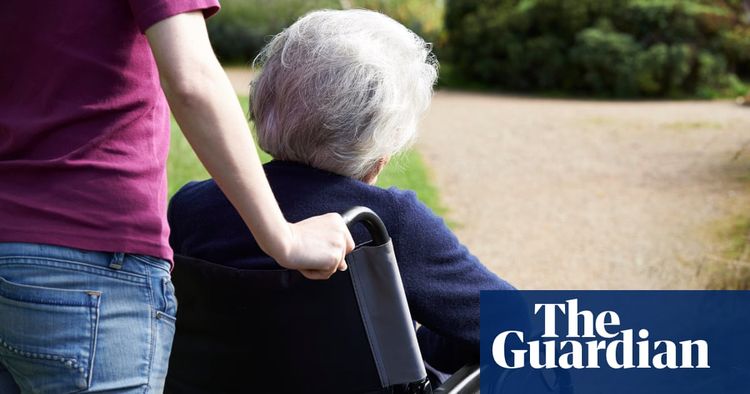Carers’ earnings limit to rise by £45 a week after allowance scandal

The Chancellor has revealed that the earnings cap for individuals receiving government aid for looking after disabled, ill, and elderly family members will increase by £45 a week. This announcement follows a six-month investigation by the Guardian into issues surrounding the carer’s allowance.
Starting in April, full-time unpaid caregivers who offer at least 35 hours of care each week will be allowed to earn up to £196 weekly without losing their carer’s allowance, which is currently set at £81.90 a week.
The decision has been positively received by advocates and caregivers, who believe it will significantly assist them in maintaining their presence in the workforce.
The Guardian exposed a significant controversy involving the Department for Work and Pensions (DWP), where thousands of caregivers were compelled to repay substantial amounts of money. In some instances, they ended up with criminal records due to being prosecuted for small and unintentional violations of the earnings limits related to carer's allowance.
Debbie Wilman, a 63-year-old unpaid caregiver, was shocked to hear Reeves's announcement. She had been forced to repay £900 in mistakenly received overpayments while balancing her part-time cleaning job and taking care of her 87-year-old mother. Her first response was simply, “Wow!”
Wilman, who works as a cleaner on a casual contract at a Wetherspoon’s pub in Stockport, Greater Manchester, mentioned that having the chance to make an additional £45 each week—equating to around £2,340 annually—without facing any penalties would significantly benefit unpaid caregivers.
“It would be a significant relief, even though not many caregivers can actually make that much due to their time constraints from their caregiving duties,” she stated. “Still, it definitely eases the burden.”
Helen Walker, the CEO of Carers UK, expressed that this initiative is crucial for reducing poverty, especially for many carers, particularly women, who need to remain in the workforce. She emphasized that it will provide essential financial support to working carers who dedicate so much of their time to caring for their disabled, ill, and elderly family members.
In her budget speech, Reeves revealed a significant change that marks the largest rise in the earnings threshold for carer's allowance in nearly 48 years. From now on, this limit will be linked to the national living wage based on a workweek of 16 hours.
The chancellor announced that the government would be reviewing carer’s allowance with the aim of eliminating the “cliff edge” penalties. These penalties currently penalize claimants by deducting an entire week’s worth of carer’s allowance if they exceed the earnings limit, even by just a tiny amount.
The proposed adjustments would provide unpaid caregivers, with 70% of them being women, more options in their work schedules and help improve their financial stability while still enabling them to receive carer’s allowance, according to the Treasury.
This change marks a shift from a five-year pattern where the income cap has not kept pace with the national living wage. Back in 2019, caregivers were able to work 15 hours per week at the national minimum wage, but by April, this had dropped to just over 13 hours. As a result, unpaid caregivers' ability to earn money has been effectively cut by 13 days each year.
A recent study conducted by the organization Carers UK revealed that 40% of unpaid caregivers stopped working due to concerns about violating the rules for receiving carer’s allowance. Additionally, almost 66% of respondents stated that limitations on earnings hindered them from working more hours.
The budget announcement follows two weeks after Work and Pensions Secretary Liz Kendall revealed an independent review of carer’s allowance, which was prompted by a campaign from The Guardian. This review aims to explore methods for better managing the benefit and reducing instances of overpayments.
The strict penalties for exceeding the earnings limit for carer’s allowance are well known: earning just £1 over the limit means you have to repay the entire benefit. For example, a carer who makes just £1 more than the current limit of £151 over the course of a year would end up repaying not £52, but a staggering £4,258.80.
According to recent statistics, approximately 34,500 individuals were required to repay overpayments of carer’s allowance last year, totaling around £250 million. Advocates argue that the Department for Work and Pensions (DWP) did not inform carers about exceeding their earnings limit, which led many to unknowingly accumulate significant debts.
Davina Ware, a 67-year-old caregiver, was heartbroken after accidentally accumulating close to £4,000 in overpayments. She argued that the investigation should clarify why the Department for Work and Pensions (DWP) took so long to inform many caregivers that they had breached income regulations. "They really need to hold the DWP accountable for that," she stated.









































